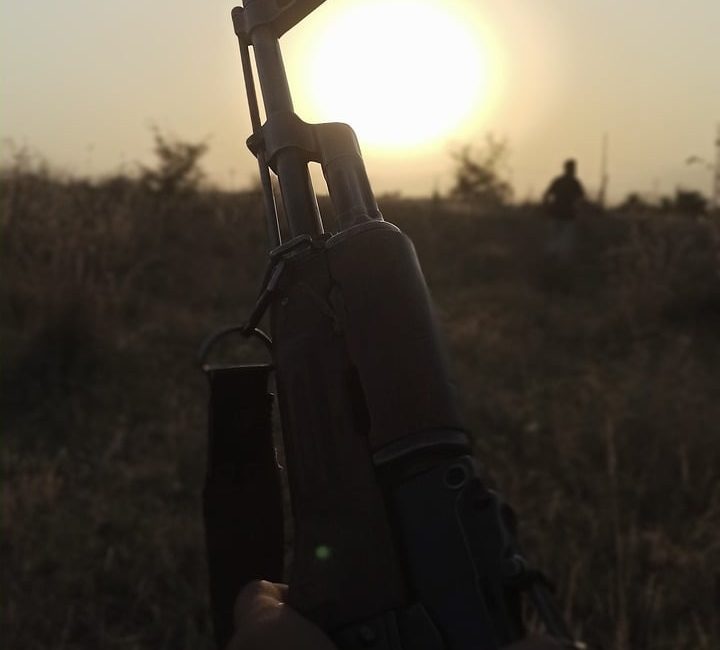The Islamic State in Iraq and Syria (ISIS) group, which once held a vast swath of territory stretching from northeastern Syria to northern Iraq, has shown signs of a significant decline in its attacks in 2023. IS activities have declined by more than half compared to previous year, and the group's leaders have also suffered huge losses.
The group's Egyptian branch has appeared discreet this year, joining other dormant branches in Libya and Yemen. As for its Afghan subsidiary, it has claimed responsibility for only a small fraction of the number of attacks it claimed last year. The group's African operations have also claimed fewer attacks, with the exception of the Sahel branch, which has expanded into eastern Mali, claimed major attacks in Niger, and focused on terrorist activities propaganda.
ISIS has claimed responsibility for a total of 838 attacks worldwide in 2023, compared to 1,811 for the same period last year, which represents a drop of 53%. Analysis and conclusions on attack figures are based on the official claims, messages and propaganda of ISIS and those of its supporters. The figures can therefore be exaggerated or sometimes minimized. All figures cited for 2023 correspond to attacks carried out between January 1 and November 30.
At its climax, the group controlled large parts of Syria and Iraq, but by 2017 it had lost 95% of its territory. In 2019, an international coalition led by the United States and Kurdish militants took control of the village of Baghouz, the last ISIS stronghold in Syria, and this operation was followed by a series of defeats that led to the decline of the group. Since then, ISIS has focused on developing its African branches, seeking to distract from its defeat in the Middle East.
In March, ISIS attempted to justify the decline in its attacks by saying it did not publicly claim responsibility for every attack it carried out, often for security reasons. The ISIS branch based in Sinai, Egypt, has not claimed any attacks this year, compared to 102 last year - including operations near the Suez Canal at the end of the year - which suggests that the Egyptian armed forces dealt him a severe blow.
Attacks by ISIS's Khorasan Province (ISKP) branch in Afghanistan have also declined, as the group claimed 20 attacks in 2023, compared to 145 in 2022 and 293 in 2021, the year of return to power of the Taliban.
Although the number of attacks has decreased, they have caused a large number of casualties. In July, the ISKP claimed responsibility for a suicide bomb attack on a political rally of the Islamist party Jamiat Ulema-e-Islam-Fazl in northwest Pakistan that left at least 60 people dead. In Iraq, ISIS has claimed responsibility for a total of 141 attacks in 2023, compared to 401 for the same period last year, a drop of 65%. The group has claimed responsibility for 112 attacks in Syria this year, compared to 292 last year.
The group has recently suffered heavy losses in the ranks of its leaders, as in just over a year ISIS has lost three different leaders, all killed in Syria between February 2022 and April 2023. After the death of Abu Bakr al-Baghdadi during a US raid on October 27, 2019, the group was led by Abu Ibrahim al-Hashimi al-Qurashi, then Abu al-Hasan al-Qurashi and finally Abu al-Hussein al-Qurashi. These rulers are not related - the nom de guerre "al-Qurashi" indicates a connection with the Quraish tribe of the Prophet Muhammad in Mecca.
Since the group declared itself a "caliphate" in June 2014, it has continued to refer to its leaders as "caliphs", the first being al-Baghdadi. In August 2023, ISIS introduced a new leader, Abu Hafs al-Hashimi al-Qurashi, but little is known about him and he has yet to deliver a leadership message.
Military operations against ISIS and competition from rival groups in some countries, including Somalia, the Sahel, the Chad region and Syria, are believed to be among the factors that have contributed to the decline in the group's activities. However, hundreds of attacks are still carried out by ISIS, particularly in Africa, and the group continues to operate in many countries by exploiting political, security and community vulnerabilities.
The war in Gaza could be seen by ISIS and other extremist groups as such an "opportunity", which would seek to redirect anger against their enemies. Nearly 20,000 people are believed to have been killed and more than 52,000 injured in Gaza since the start of the war, which erupted after Hamas raids in Israel on October 7.
While Al-Qaeda has called on Muslims to take part in the fight alongside Palestinian militants, the ISIS response, published in the group's weekly Al-Naba, does not praise the Palestinian groups nor does it call on Muslims to support Hamas, as the group had previously accused Hamas of repressing its supporters in the Gaza Strip.

